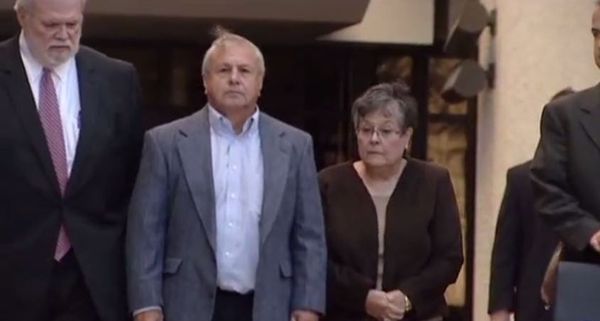Donald Vidrine, BP’s supervisor on the Deepwater Horizon drilling rig when it exploded and set off the worst oil spill in U.S. history, died Saturday after a long battle with cancer.
He was 69.
Vidrine, a native of Ville Platt who lived in Lafayette, was in charge on the Deepwater Horizon on April 20, 2010, when a final test was supposed to tell the crew if it was safe to plug and abandon the well they had drilled for BP a mile below the floating rig.
Test readings indicated the well was flowing and in danger of blowing out, but other readings seemed contradictory, confusing Vidrine and the contracted rig crew that answered to him.
Shortly after Vidrine approved that test and gave the go-ahead to remove synthetic drilling mud that was used to keep the well in balance, oil and gas shot up to the rig, setting off massive explosions that eventually sunk the rig two days later.
Federal prosecutors blamed Vidrine and his fellow rig supervisor, Robert Kaluza, charging them with manslaughter in the death of 11 crew members and with criminal violations of water pollution laws.
But the manslaughter charges were eventually dropped against both men and Vidrine pleaded guilty to a single pollution count. He was sentenced to 10 months of probation. Kaluza was acquitted of all charges.
Still, Hollywood stuck to a story portraying Vidrine as the villain. He was played by John Malkovich in last year’s “Deepwater Horizon” film, but it contains several inaccuracies – chiefly, how it characterizes Vidrine.
Malkovich makes it look like Vidrine was focused squarely on maximizing profits for BP, when in fact court records and witness testimony showed that it was Vidrine’s bosses in Houston who were pressing to cut costs on the Macondo well – which the crew called the “well from hell.”
The movie also shows Malkovich, as Vidrine, browbeating the crew to accept his explanation of the failed pressure test readings. But testimony showed it was actually the rig crew from Transocean that tried to explain away the pressure readings to Vidrine, not the other way around.
Meanwhile, the movie makes no mention of BP’s culpability or the role of supervisors in the fateful decisions that doomed the rig. In reality, BP was convicted of manslaughter and criminal pollution violations and had to pay a record $4.5 billion in criminal fines.
The court record shows Vidrine called his supervisor in Houston shortly before the explosion to discuss his concerns about the pressure readings, but the shore-side engineer, Mark Hafle, told him to move ahead with removing protective drilling mud from the well hole. Hafle pleaded the Fifth Amendment to avoid testifying and was never charged.
Vidrine did not testify in the case for years because of illness. He suffered a heart attack and recurring cancer after the explosion.
Lillian Espinoza-Gala, a former oilfield worker who investigated the Deepwater Horizon incident with a group of scientists, said Vidrine was unfairly blamed for decisions made by BP higher-ups.
“Many of the engineers for major service companies who worked for Don on all the rigs prior to his transfer to Deepwater Horizon tell me he was the most conservative and risk-adverse company man they had ever known,” she wrote on TheAdvertiser.com. “Vidrine did speak out three days before the blow out and so did many others. But in our industry’s haste and with understaffing due to 2009 downturn, at critical points communication failed.”


